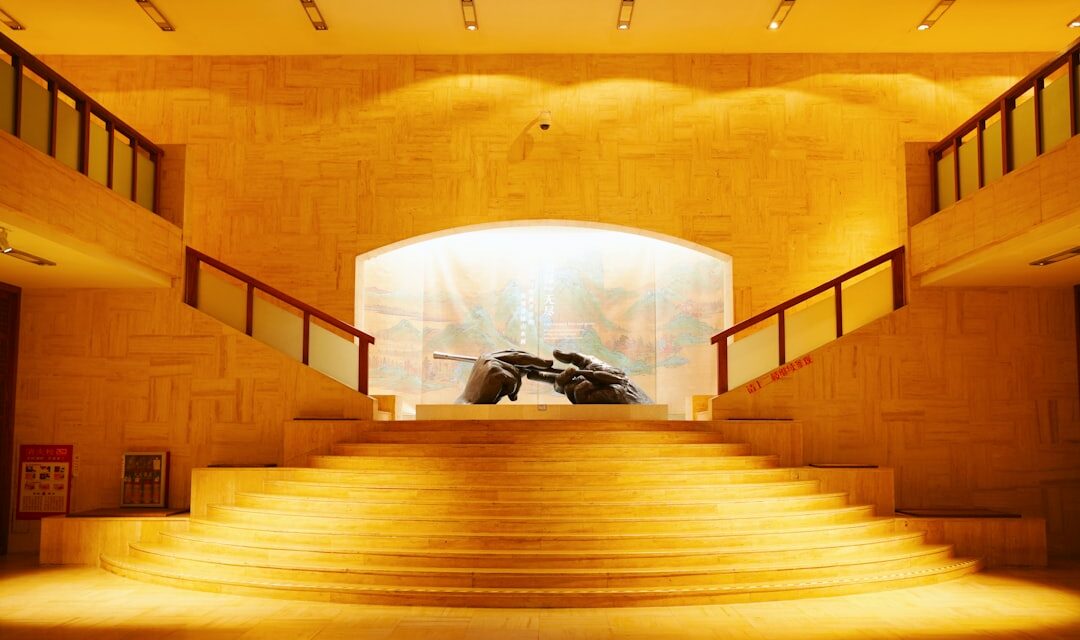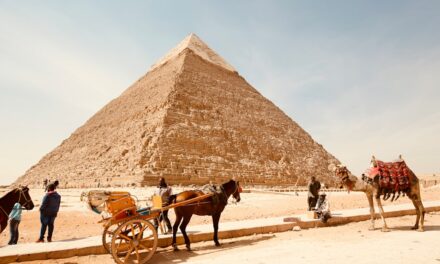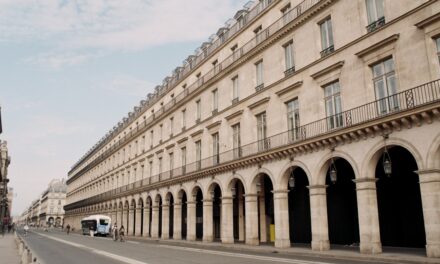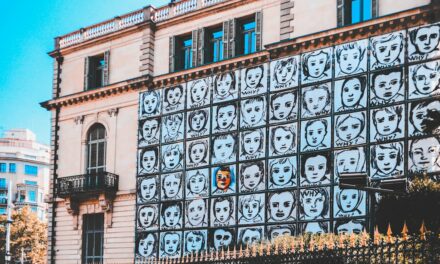The Fundación Juan March was established in 1955 by the Spanish banker and philanthropist Juan March Ordinas, who sought to promote culture and education in Spain during a time of significant political and social upheaval. Born in 1880, March was a prominent figure in Spanish finance and industry, amassing considerable wealth through various ventures, including banking and tobacco. His vision for the foundation was to create a space that would foster cultural enrichment and intellectual discourse, particularly in the aftermath of the Spanish Civil War.
The foundation’s inception marked a pivotal moment in Spain’s cultural landscape, as it aimed to bridge the gap between traditional Spanish culture and contemporary artistic movements. From its early days, the Fundación Juan March focused on a diverse array of cultural initiatives, including music, visual arts, literature, and education. The foundation’s headquarters, located in Madrid, was designed by the architect José Antonio Coderch and opened its doors to the public in 1973.
Over the decades, it has evolved into a significant cultural institution, hosting exhibitions, concerts, lectures, and educational programmes that reflect both national and international artistic trends. The foundation has played a crucial role in promoting Spanish artists and intellectuals while also providing a platform for global cultural exchange.
Summary
- Fundación Juan March was established in 1955 by Juan March, a Spanish financier and philanthropist, to promote culture and education in Spain.
- The foundation’s mission is to promote research and dissemination of Spanish culture and to contribute to the training of professionals in the fields of science, technology, and the arts.
- The foundation organises concerts, conferences, seminars, and exhibitions to promote cultural and educational activities.
- The art collection at Fundación Juan March includes works by renowned Spanish artists such as Picasso, Miró, and Dalí.
- The library and research centre at Fundación Juan March houses a vast collection of books, documents, and audiovisual materials related to Spanish culture and history.
Mission and Objectives of the Fundación Juan March
Supporting Artistic Expression
The foundation seeks to support artistic expression across multiple disciplines, including music, visual arts, literature, and social sciences. By creating an environment that encourages learning and exploration, the Fundación Juan March aims to enrich the cultural fabric of Spanish society and contribute to the broader European cultural landscape.
Accessibility and Collaboration
One of the primary objectives of the foundation is to make culture accessible to a wide audience. This commitment is evident in its diverse programming, which includes free exhibitions, concerts, and educational workshops designed for people of all ages. The foundation also prioritises collaboration with artists, scholars, and cultural institutions to create innovative projects that engage the public.
Nurturing Talent and Inspiring Future Generations
By nurturing talent and providing resources for artistic development, the Fundación Juan March aims to inspire future generations of creators and thinkers.
Cultural and Educational Activities at the Fundación Juan March
The Fundación Juan March offers a rich array of cultural and educational activities that cater to diverse interests and age groups. Its concert series is particularly noteworthy, featuring performances by renowned musicians and emerging artists alike. The foundation has hosted a variety of musical genres, from classical to contemporary, often highlighting works by Spanish composers.
These concerts not only provide entertainment but also serve as an educational platform where audiences can learn about the historical context and significance of the music being performed. In addition to music, the foundation places a strong emphasis on visual arts through its rotating exhibitions. These exhibitions often showcase both established and up-and-coming artists, providing them with a venue to present their work to the public.
The foundation also organises workshops and seminars that encourage active participation from attendees. These educational initiatives are designed to deepen understanding of artistic practices and foster appreciation for various art forms. By engaging with artists directly, participants gain insights into creative processes and can explore their own artistic potential.
The Fundación Juan March Art Collection
The art collection at the Fundación Juan March is a testament to its commitment to promoting visual arts in Spain. The collection comprises over 1,500 works spanning various periods and styles, with a particular focus on 20th-century Spanish art. Notable artists represented in the collection include Pablo Picasso, Salvador Dalí, Joan Miró, and Juan Gris.
This diverse array of artworks not only reflects the evolution of Spanish art but also highlights the foundation’s dedication to preserving and showcasing significant cultural heritage. The collection is not static; it is regularly updated through acquisitions and loans from other institutions. This dynamic approach allows the Fundación Juan March to present thematic exhibitions that explore specific artistic movements or concepts.
For instance, exhibitions may focus on surrealism or abstraction, providing visitors with a comprehensive understanding of these styles’ historical significance. Additionally, the foundation often collaborates with other museums and galleries to organise travelling exhibitions that extend its reach beyond Madrid.
The Fundación Juan March Library and Research Centre
The Fundación Juan March houses an extensive library and research centre that serves as a valuable resource for scholars, students, and anyone interested in delving deeper into cultural studies. The library boasts a vast collection of books, periodicals, and archival materials related to art, music, literature, and social sciences. This wealth of information supports academic research while also catering to casual readers seeking knowledge about various cultural topics.
In addition to its physical collection, the library offers access to digital resources that enhance research capabilities. Scholars can utilise online databases and archives that provide access to rare documents and publications not readily available elsewhere. The research centre also hosts lectures, workshops, and conferences that encourage dialogue among academics and practitioners in the field.
By fostering an environment of inquiry and collaboration, the Fundación Juan March library plays a crucial role in advancing cultural scholarship.
Collaborations and Partnerships with other Institutions
The Fundación Juan March actively seeks collaborations with other cultural institutions both within Spain and internationally. These partnerships are instrumental in expanding the foundation’s reach and enhancing its programming. By working with museums, universities, and cultural organisations, the foundation can organise joint exhibitions, educational initiatives, and research projects that benefit from shared expertise and resources.
One notable collaboration involved a partnership with the Museo del Prado for an exhibition showcasing works by Spanish masters alongside contemporary interpretations by modern artists. This innovative approach not only attracted diverse audiences but also sparked discussions about the relevance of historical art in contemporary contexts. Such collaborations exemplify how the Fundación Juan March leverages partnerships to create enriching experiences that resonate with visitors while promoting cross-cultural dialogue.
Visitor Information and Opening Hours
The Fundación Juan March welcomes visitors from all walks of life who are eager to engage with its rich cultural offerings. Located in Madrid’s city centre, the foundation is easily accessible via public transport. It provides a welcoming environment where individuals can explore art exhibitions, attend concerts, or participate in educational workshops.
The foundation’s commitment to accessibility is reflected in its policy of offering free admission to many events and exhibitions. Opening hours vary depending on the specific activities taking place; however, the foundation generally operates from Tuesday to Saturday during regular business hours. Special events may extend these hours or require advance booking due to limited capacity.
Visitors are encouraged to check the foundation’s official website for up-to-date information on current exhibitions, concert schedules, and educational programmes.
Future Plans and Developments for the Fundación Juan March
Looking ahead, the Fundación Juan March is poised for continued growth and innovation as it seeks to adapt to changing cultural landscapes. One area of focus is expanding its digital presence through virtual exhibitions and online educational resources. This initiative aims to reach broader audiences beyond Madrid while ensuring that those unable to visit in person can still engage with its offerings.
Additionally, the foundation plans to enhance its community outreach efforts by developing programmes tailored specifically for local schools and underserved populations. By fostering partnerships with educational institutions, the Fundación Juan March aims to inspire young minds through exposure to art and culture. These future developments reflect a commitment not only to preserving cultural heritage but also to nurturing creativity and critical thinking among future generations.
If you are interested in learning more about art and its history, you may also enjoy reading An introduction to Romanesque art. This article delves into the fascinating world of Romanesque art, exploring its unique characteristics and significance in the art world. It provides a comprehensive overview of this artistic movement, offering insights into its origins, development, and key features. Whether you are a seasoned art enthusiast or a newcomer to the art world, this article is sure to deepen your understanding and appreciation of Romanesque art.




